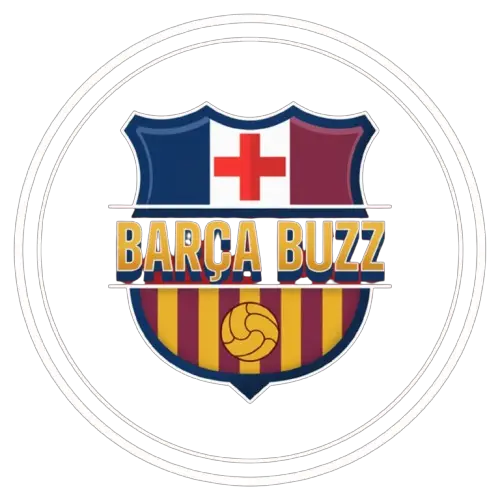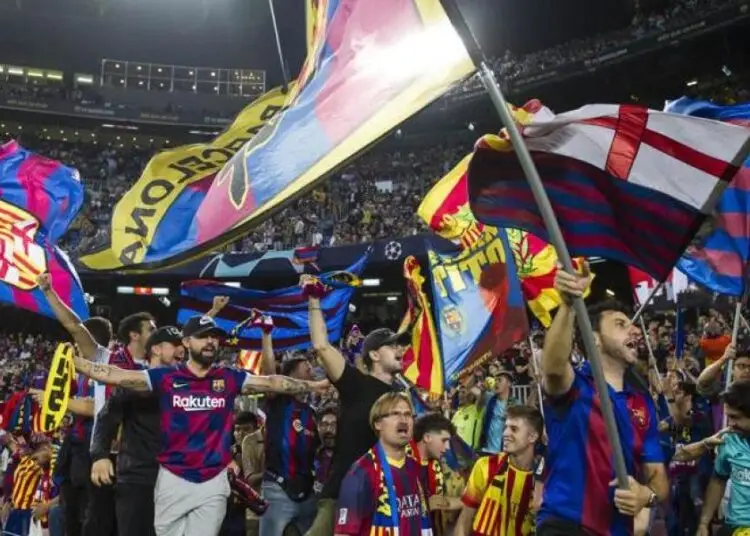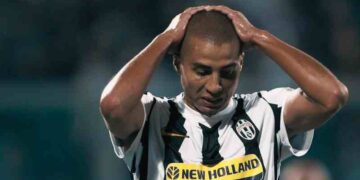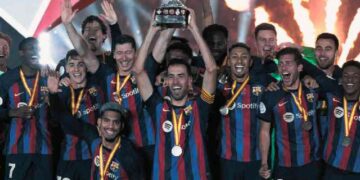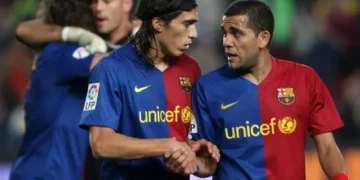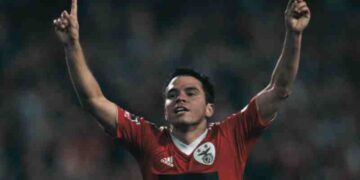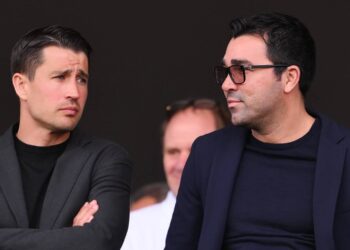Francisco Franco’s regime in Spain (1939-1975) was marked by suppression of regional identities and political dissent. One of the regions most affected by Franco’s policies was Catalunya, which saw its language, culture, and autonomy severely curtailed. FC Barcelona, one of the most famous football clubs in the world, also found itself in Franco’s crosshairs, as the club’s spirit of independence and connection to Catalan identity made it a target for repression.
In this article, we will explore the dark history of Franco’s treatment of Catalunya and FC Barcelona. By examining the political, social, and economic context of the time, we can better understand the tactics and strategies that Franco used to suppress Catalunya’s regional identity and quash FC Barcelona’s spirit of independence. We will also explore how FC Barcelona served as a symbol of resistance and resilience against oppression, and how the club continues to shape Catalunya’s identity today. By studying this history, we can gain valuable insights into the ongoing struggles for autonomy and self-determination that continue to shape the world today. Furthermore, the struggles Barça faces against the media from Spain’s capital. Both of them go together.
Historical Context
Spain’s history leading up to Franco’s regime was marked by political instability, social unrest, and economic turmoil. The country had experienced a series of civil wars, coups, and revolutions throughout the 19th and early 20th centuries, with power frequently shifting between various factions and parties. In 1931, Spain became a republic, but the government struggled to address the country’s numerous challenges, including poverty, illiteracy, and social inequality. This period was marked by political polarization, with the rise of both leftist and right-wing extremist groups.
In 1936, a military uprising led by General Francisco Franco plunged Spain into a brutal civil war that lasted until 1939. Franco’s Nationalist forces, backed by fascist regimes in Italy and Germany, eventually emerged victorious, and Franco established a dictatorship that would last for 36 years. Franco’s regime was characterized by authoritarianism, censorship, and repression of political opposition. He centralized power in Madrid and sought to suppress regional identities and languages, including Catalan.
The oppression
During this time, Catalunya faced severe discrimination and suppression of its cultural and linguistic identity. The use of the Catalan language was banned in public spaces, schools, and the media. The region’s autonomy was also curtailed, and its political leaders were often persecuted and imprisoned. The central government in Madrid took control of many of the region’s institutions, including the police force, judiciary, and education system. This led to a deep sense of frustration and resentment among many Catalans, who saw their rights and identity being trampled upon by the central government.
In this context, FC Barcelona emerged as a symbol of resistance and pride for Catalans, as the club’s identity was deeply intertwined with the region’s cultural and linguistic heritage. However, the club’s connection to Catalan identity also made it a target for repression by Franco’s regime, which sought to undermine the club’s autonomy and reputation. In the following chapters, we will explore in more detail how Franco’s policies affected Catalunya and FC Barcelona.
Franco’s Treatment of Catalunya
Franco’s regime was marked by a policy of centralization of power and suppression of regional identities, with Catalunya being one of the regions most affected by this policy. Franco sought to eradicate the use of the Catalan language and suppress Catalan cultural traditions, which he saw as a threat to Spanish unity. The regime also discriminated against the region economically, leading to widespread poverty and unemployment.
One of the most significant policies implemented by Franco was the ban on the use of the Catalan language in public spaces, schools, and the media. The use of Catalan was seen as a political act and was therefore severely punished. Many Catalan activists and intellectuals were persecuted and imprisoned for advocating for the use of the Catalan language and cultural traditions. The regime also sought to erase Catalan history and cultural identity, replacing Catalan place names with Spanish ones and suppressing the celebration of Catalan festivals.
The central government in Madrid took control of many of Catalunya’s institutions, including the police force, judiciary, and education system. This led to a lack of autonomy for the region and a feeling of powerlessness among many Catalans. The regime also discriminated against the region economically, leading to widespread poverty and unemployment. Many Catalan businesses and industries were nationalized or closed down, leading to the loss of many jobs and the displacement of families.
Barça as a Catalan symbol
Franco’s regime also targeted Catalan political leaders, many of whom were imprisoned or executed for advocating for Catalunya’s autonomy and identity. This led to a sense of fear and intimidation among the Catalan population, who were unable to express their opinions or advocate for their rights without fear of retribution.
In this context, FC Barcelona emerged as a symbol of Catalan identity and resistance against Franco’s policies. The club’s connection to Catalan language and culture made it a target for repression by the regime, as we will explore in the following chapter.
Franco’s Treatment of FC Barcelona
FC Barcelona’s connection to Catalan identity and culture made it a target for repression by Franco’s regime. The club’s independence and spirit of resistance against central authority were seen as a threat to the regime’s policy of centralization and suppression of regional identities.
One of the most significant incidents involving Franco and FC Barcelona occurred during the Spanish Civil War, when the club’s president at the time, Josep Sunyol, was executed by Franco’s forces. Sunyol was a prominent Catalan politician and a supporter of the region’s autonomy, and his execution was seen as a warning to those who advocated for Catalan independence.
During Franco’s regime, FC Barcelona faced significant challenges, including the closure of its stadium, the Camp de Les Corts, in 1936, and the suspension of its activities during the 1937-1938 season. The club’s players and officials were also subject to surveillance and harassment by Franco’s authorities, and the use of Catalan language and symbols was strictly forbidden in the stadium and during games.
Winning despite the challenges
Despite these challenges, FC Barcelona remained a symbol of Catalan identity and resistance. The club’s fans continued to display the Catalan flag and sing Catalan songs during games, despite the risk of punishment. The team also continued to represent Catalunya in international competitions, which helped to maintain a sense of pride and unity among the Catalan population.
In the 1960s and 1970s, FC Barcelona became a focal point for anti-Franco protests, as the club’s success on the field and its connection to Catalan identity made it a powerful symbol of resistance. The club’s players, including Johan Cruyff and Carles Rexach, were outspoken critics of Franco’s regime and used their platform to advocate for democracy and freedom.
Overall, FC Barcelona’s connection to Catalan identity and culture made it a target for repression by Franco’s regime. Despite facing significant challenges and discrimination, the club remained a symbol of resistance and pride for Catalans and played a significant role in the struggle for autonomy and self-determination.
FC Barcelona as a Symbol of Resistance
FC Barcelona has long been a symbol of Catalan identity and culture, but it also became a powerful symbol of resistance during Franco’s regime. The club’s connection to Catalan language and traditions, combined with its history of success and independence, made it a powerful force against the regime’s policy of centralization and suppression of regional identities.
Despite facing significant challenges, FC Barcelona remained a symbol of resistance and pride for Catalans. The team’s successes on the field were seen as victories for Catalan identity and culture, and the club’s players and officials used their platform to advocate for democracy and freedom.
One of the most significant moments in FC Barcelona’s history as a symbol of resistance occurred in 1971, when the team played a friendly match against the Soviet Union. The match was seen as a protest against Franco’s regime, which had recently signed a treaty with the Soviet Union. The team wore jerseys with a red and yellow stripe, the colors of the Catalan flag, and played the Catalan national anthem before the match. The game ended in a 4-1 victory for FC Barcelona, cementing the team’s reputation as a symbol of resistance and defiance.
FC Barcelona’s connection to Catalan identity and culture also played a role in the club’s success on the field. The team’s style of play, known as “tiki-taka,” emphasized teamwork, creativity, and individual flair, and was seen as a reflection of Catalan values and traditions. The team’s successes on the field were therefore seen as victories for Catalan culture and identity, further cementing the club’s reputation as a symbol of resistance.
Catalan ambitions not going anywhere
In recent years, FC Barcelona has continued to play a significant role in the struggle for Catalan autonomy and self-determination. The club’s support for the Catalan independence movement has led to controversy and division, but it has also helped to maintain a sense of pride and unity among the Catalan population.
Overall, FC Barcelona’s history as a symbol of resistance is a testament to the power of sport and culture to inspire change and challenge authority. The club’s connection to Catalan identity and culture, combined with its history of success and independence, made it a powerful force against Franco’s regime and continues to inspire resistance and defiance today.
Franco’s Treatment of FC Barcelona and Real Madrid: A Comparison
While Franco’s treatment of FC Barcelona is well-documented and widely known, his treatment of Real Madrid is often overlooked. However, a comparison of the two clubs’ histories during Franco’s regime reveals stark differences in how they were treated by the regime.
FC Barcelona, as a symbol of Catalan identity and culture, was seen as a threat to Franco’s policy of centralization and suppression of regional identities. The club faced significant challenges, including discrimination, censorship, and repression of its players and officials. Franco saw the team as a potential source of rebellion and resistance, and thus sought to suppress its influence.
In contrast, Real Madrid was seen as a symbol of Spain and the Spanish monarchy. The team enjoyed a privileged position under Franco’s regime, with the dictator himself being a fan of the team. Real Madrid was allowed to operate relatively freely and faced few of the challenges and obstacles that FC Barcelona did.
This disparate treatment of the two teams had significant implications for their respective histories. FC Barcelona, as a symbol of resistance, was able to rally support from Catalans and gain international attention for its struggle against Franco’s regime. Real Madrid, on the other hand, was seen as a symbol of conformity and support for the regime, and thus was not able to inspire the same level of passion and support from the public.
When Real Madrid realized it’s better to hide their connection to Franco
In recent years, the two teams’ differing histories have played a role in their respective positions on the issue of Catalan independence. FC Barcelona has been a vocal supporter of the movement, with many of its fans and players seeing it as a continuation of the struggle against Franco’s regime. Real Madrid, on the other hand, has generally been more cautious and reserved in its public statements on the issue.
Overall, the disparate treatment of FC Barcelona and Real Madrid during Franco’s regime had significant implications for their respective histories and legacies. The two teams’ differing positions on the issue of Catalan independence can be traced back to this history, and serve as a reminder of the power of sport and culture to inspire change and challenge authority.
Conclusion
Franco’s treatment of Catalunya and FC Barcelona represents a dark chapter in the history of Spain, characterized by centralization and suppression of regional identities. The regime’s policy of repression led to the persecution of those who advocated for Catalan autonomy and the suppression of Catalan language and culture. However, FC Barcelona’s history during this time serves as a testament to the power of sport and culture to inspire change and challenge authority. Despite facing significant challenges and discrimination, the club remained a symbol of resistance and pride for Catalans.
Comparing Franco’s treatment of FC Barcelona to that of Real Madrid reveals stark differences in how the two clubs were treated by the regime. Real Madrid, as a symbol of Spain and the Spanish monarchy, was allowed to operate relatively freely and faced few of the challenges and obstacles that FC Barcelona did. This disparate treatment had significant implications for their respective histories and legacies.
FC Barcelona’s history as a symbol of resistance serves as a reminder of the importance of defending regional identities and promoting freedom and democracy. The club’s connection to Catalan identity and culture, combined with its history of success and independence, made it a powerful force against Franco’s regime and continues to inspire resistance and defiance today. Real Madrid’s history as a symbol of conformity and support for the regime serves as a cautionary tale about the dangers of uncritical support for authority.
The source for the rivalry
The differing histories of FC Barcelona and Real Madrid continue to play a role in their respective positions on the issue of Catalan independence. FC Barcelona has been a vocal supporter of the movement, with many of its fans and players seeing it as a continuation of the struggle against Franco’s regime. Real Madrid, on the other hand, has generally been more cautious and reserved in its public statements on the issue.
In conclusion, Franco’s treatment of Catalunya and FC Barcelona remains a dark stain on the history of Spain, but the club’s history as a symbol of resistance is a testament to the power of sport and culture to inspire change and challenge authority. The disparate treatment of FC Barcelona and Real Madrid serves as a reminder of the dangers of uncritical support for authority and the importance of defending regional identities and promoting freedom and democracy.
Discover more from Barça Buzz
Subscribe to get the latest posts sent to your email.
